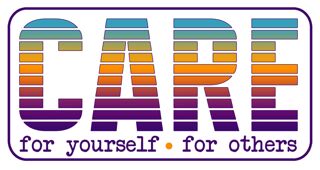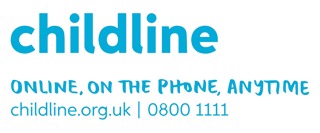- Home
- Personal Development
- Supporting Young People and their Families
Supporting Young People and their Families
 The Chase is a fully comprehensive school: We welcome students from a wide range of different religious, ethnic and socio-economic backgrounds and we celebrate diversity in our community. We recognise that the young people in our community face a huge variety of challenges in their daily lives which may at times become a barrier to learning and academic success. We firmly believe that pastoral success and academic success go hand in hand - without strong pastoral care, some students may struggle to flourish academically and can suffer socially.
The Chase is a fully comprehensive school: We welcome students from a wide range of different religious, ethnic and socio-economic backgrounds and we celebrate diversity in our community. We recognise that the young people in our community face a huge variety of challenges in their daily lives which may at times become a barrier to learning and academic success. We firmly believe that pastoral success and academic success go hand in hand - without strong pastoral care, some students may struggle to flourish academically and can suffer socially.
Providing Early Help and support means we can improve outcomes for young people and their families. If you are worried about a young person in our community, please do not hesitate to contact your child’s year leader to discuss your concern or for further information and advice.
 Early Help, also known as early intervention, is support given to a family when a problem first emerges to avoid any concerns or issues escalating further and impacting on the young person’s development. At The Chase, we offer a wide variety of Early Help support around a number of challenges that young people face, from Mental Health support, to support with behaviour or challenges with learning. The Pastoral Team work closely with the SEND (Special Educational Needs and Disabilities) department to remove barriers to learning and encourage independence and success. We firmly believe that ‘Inclusion Elevates All’.
Early Help, also known as early intervention, is support given to a family when a problem first emerges to avoid any concerns or issues escalating further and impacting on the young person’s development. At The Chase, we offer a wide variety of Early Help support around a number of challenges that young people face, from Mental Health support, to support with behaviour or challenges with learning. The Pastoral Team work closely with the SEND (Special Educational Needs and Disabilities) department to remove barriers to learning and encourage independence and success. We firmly believe that ‘Inclusion Elevates All’.
Mental Health and Wellbeing
A supportive school ethos can encourage young people to feel safe and to talk about their feelings. It can:
- reduce isolation in the emotions they experience;
- relieve tension by enabling young people to talk and be listened to;
- provide an opportunity to develop an appropriate vocabulary, making violence less likely as a way of expressing needs;
- allow children to perceive situations more clearly for planning an action or change;
- make children feel protected by a culture which actively promotes a ‘listening environment’ and challenges unacceptable practice.
Emotional Wellbeing & Mental Health Pathway
Looking after your mental health is important. There are loads of things you can do, and different things will work for different people. The Childline website is a great source of tips and activities for helping young people to feel their best and keep calm.
It’s completely normal for young people to experience worries from time to time. If your child shares their concerns, talking it through with a family member or friend can often provide comfort that they need. However, if these worries become ongoing, leading to anxiety or low mood over several days or recurring frequently, it might be helpful for your child to receive extra support in addressing the root of their worries.
 Kooth is website/app that we promote to students in school. It is a free, safe and anonymous place for young people to be able to find online support and counselling. More information, and a useful video, about their service is available on their website.
Kooth is website/app that we promote to students in school. It is a free, safe and anonymous place for young people to be able to find online support and counselling. More information, and a useful video, about their service is available on their website.
Attitude and Engagement
At The Chase, we understand that most young people come to school ready and eager to learn. We aim to nurture and strengthen this enthusiasm so that, when they leave, they have the skills, determination, and adaptability to continue learning throughout their lives. Developing these skills is essential for future success, as they help students gain new knowledge and adapt to a changing world.
While teachers guide learning and create a supportive environment, students benefit even more when they learn to manage their own learning. Some students may need extra support to develop this important skill to become independent learners who can regulate their own behaviour for positive outcomes. They need to be able to set goals, track their progress, and adjust their learning strategies when needed.
|
Intervention/support |
What Is It? |
|
Youth Mental Health First Aiders (All Pastoral Team) |
Trained to spot the signs of mental health issues in a young person, offer mental health first aid and guide them towards the support they need. Not a therapist, but trained to listen, reassure and respond, even in a crisis - and even potentially stop a crisis from happening. |
|
Adult Mental Health First Aiders |
Trained to spot the signs of mental health issues in adults, offer mental health first aid and guide them towards the support they need. Not a therapist, but trained to listen, reassure and respond, even in a crisis - and even potentially stop a crisis from happening. |
|
Wellbeing and Emotional Support Team (WEST) |
The NHS WEST team are qualified in delivering a Low Intensity Cognitive Behavioural Therapy (CBT) informed interventions. The interventions are delivered in either 1:1 or in a group work format over 6 – 8 sessions. It can include individual and group work with parents/carers too. Low Intensity Cognitive Behavioural Therapy (LICBT) is suitable for mild to moderate mental health needs and is different to counselling. It requires a degree of motivation and involves children/young people practicing skills outside of the sessions. There is an expectation that parents/carers will support their child with some home-based tasks between sessions. See link from website. |
|
School Counselling Service |
We are very fortunate at The Chase to be able to offer counselling sessions to young people who require mental health or emotional wellbeing support. The counselling sessions are with Kate Finch, Independent Counsellor offering counselling for Mental Health Support, Guidance & Counselling for Children & Young People Private sessions with Kate Finch are also offered in an attempt to reduce the waiting time for students accessing support through the school. These sessions are privately arranged but take place in school. |
|
ELSA |
ELSA are Emotional Literacy Support Assistants. They are a specialist teaching assistant with a wealth of experience of working with children. ELSAs are trained and regularly supervised by Educational Psychologists. An ELSA is a warm and caring person who wants to help your child feel happy in school and to reach their potential educationally. Their aim is to build your child’s emotional development and help them cope with life’s challenges. The ELSA will help your child find solutions to any problems they have. Group or individual sessions. |
|
Drawing & Talking |
A gentle, non-intrusive method of working with students who need a little help to support their emotional and learning needs. Delivered over a 12-week period Drawing and Talking is a therapeutic intervention that aids students to process emotional pain resulting from trauma, expressing their feelings through drawing. |
|
Lego Therapy |
Lego Therapy is a programme that uses Lego activities to help develop social skills with social interaction, turn taking and problem solving. It a therapeutic intervention that promotes social understanding as well as developing fine motor skills. |
|
PERMA model |
The PERMA model has five elements, Positive Emotion, Engagement, Relationships, Meaning and Accomplishments. This is a model we use with some of our Autistic students - it focuses on wellbeing to encourage happiness and engagement at school. For students identified by SEND. |
|
Wellbeing/Anger Management Mentor |
The Chase Wellbeing Mentor has a wealth of experience of working with young people who are finding it difficult to regulate their emotions or are experiencing symptoms of anxiety. Following an established mentoring plan, the mentor supports the young person to be able to identify their feelings and manage them effectively. Offering strategies to practice, together with the young person, they will set goals for the future. |
|
Peer Mentor |
Peer Mentoring has been evidenced as having a positive impact on the emotional health and well-being of young people in the following ways:
|
|
Academic/Pastoral Link Mentor |
An Academic Pastoral and Learning Mentor (APLM) plays a vital role in supporting students' academic progress and emotional wellbeing. They provide regular mentoring sessions, using structured resources such as our mentoring booklets and teacher feedback to monitor progress. APLMs act as a key link between students, teachers, and other colleagues, ensuring effective communication and the sharing of strategies to support individual needs. As an emotionally available adult, they offer stability and guidance to students struggling with various aspects of secondary school, helping them feel safe and supported in the school environment. Additionally, APLMs engage in professional development such as Youth Mental Health First Aid, equipping them with the skills to respond effectively to students' emotional and behavioural needs. Their work is essential in fostering a positive, inclusive, and supportive learning atmosphere where every student can thrive. |
|
Behaviour Mentor |
While teachers guide learning and create a supportive environment, students benefit even more when they learn to manage their own learning. Some students may need extra support to develop this important skill to become independent learners who can regulate their own behaviour for positive outcomes. With the Assistant Head for Behaviour and Inclusion or the Behaviour Support Officer, students and parent/carers create a Behaviour plan, setting goals and tracking their progress. Making reasonable adjustments their learning strategies when needed. |
|
Malvern Cube Youth Mentor |
Malvern Cube is run by a charity, Malvern Youth and Community Trust. They are a volunteer led organisation, operating ‘for the community, by the community’. This means that community benefit is the governing principle at the heart of all that we do. Youth Workers from Malvern Cube offer weekly mentoring sessions with students at The Chase and we support Malvern Cube by promoting their activities to parents and students in our community. Malvern Cube Youth mentoring can include specific mentoring around LGBTQIA+ |
|
Colwall Youth Project Youth Mentor |
Colwall Youth Project is a charity supporting young people and young adults. They have an experienced team of Youth Workers who provide an accessible, friendly, and safe environment for all young people. Colwall Youth Project is a community resource, dedicated to understanding and meeting the diverse needs of the wider community. Services include Youth Mentors coming to The Chase to support the mental health and wellbeing of our students on a 1:1 basis. They build a rapport with the students and provide life skills. They will also offer pupils the opportunity to join the Colwall Youth Group which takes place in Colwall, providing opportunities and a safe place for individuals to take part in activities and attend life skills sessions which will have an impact on their futures. |
|
Colwall Youth Project (Empower)
|
Colwall Youth Project also run an Empowerment Programme in schools. The team provide interactive group sessions on various topics which will aim to improve mental health and wellbeing by focusing on matters which are affecting individuals at their specific age range. Session topics include: managing academic pressures, resilience, online safety, personal perception, managing your mental health and more. Sessions run for approximately 6 weeks at a time. |
|
Action for Children Blues Programme |
The Blues Programme is an internationally acclaimed wellbeing programme for young people aged 13-19 run by Action for Children and funded by Royal Mail. Over six weeks, it teaches emotional resilience and reduces low mood and anxious thoughts. Crucially, it gets teenagers talking. On average, every classroom in Britain has three children with a diagnosable mental health illness. So far, they have delivered The Blues Programme in over 150 schools, to more than 5,500 young people.
|
|
CRUSH |
CRUSH was formed by Women’s Aid and is aimed at 13-18-year olds who have experienced unhealthy relationships. In its early days the focus was around abusive relationships but more recently the workshop looks at all types of relationships and how we can form healthy relationships. These relationships may be girl/boyfriend, peer or family relationships |
|
ME Programme |
For students who are on the Umbrella Pathway awaiting the outcome we offer the ME programme which looks at strengths and difficulties and how to manage them – delivered by our trained autism mentors. For students identified by SEND |
|
Worcestershire Autism Mentor (WAM) programme |
Mentors are trained to deliver an individualised programme of autism awareness to students diagnosed with Autism. The WAM works with the student to support them in their understanding of how their diagnosis affects them and support strategies. Once the programme is completed, then ongoing Autism mentoring support continues, either by appointment or on a drop-in basis. For students identified by SEND |
|
SALT programmes |
Staff are trained to deliver SALT recommended programmes such as The Black Sheep Press programme. For students identified by SEND |
|
Communication Groups |
Communication difficulties can be around Speech and Language issues, social skills, anxiety or friendship-based issues, or linked to a diagnosis such as Autism. Each group is specific to the need and run by a trained staff member. Usually runs for a 6 week period, though this may extend. For students identified by SEND |
|
ADHD Support Programme |
Currently in development - this programme is being developed in conjunction with an Educational Psychologist. The ADHD Support Programme will offer understanding of a diagnosis of ADHD and strategies to help the student manage their day-to-day experiences. This will be followed by ongoing mentoring support either by appointment or on a drop-in basis. For students identified by SEND |
|
Learning Centre at lunch |
Students can develop their social skills while eating their lunch in a quiet and supported environment. |
|
Wellbeing Room at lunch |
Students can develop their social skills while eating their lunch in a quiet and supported environment. |
|
C2 at lunch |
Students can complete homework while eating their lunch in a supervised computer room. |
Support for young people and their families in Worcestershire
Support, courses and workshops for parents, carers and grandparents
Herefordshire and Worcestershire Child and Adolescent Mental Health Services (CAMHS)
Wellbeing and Emotional Support Teams (WEST)Chat Health - School Health Nursing ServiceShoutreach - Sexual Health Outreach ServiceAlumina - Self-harm support for 10-17 year olds

